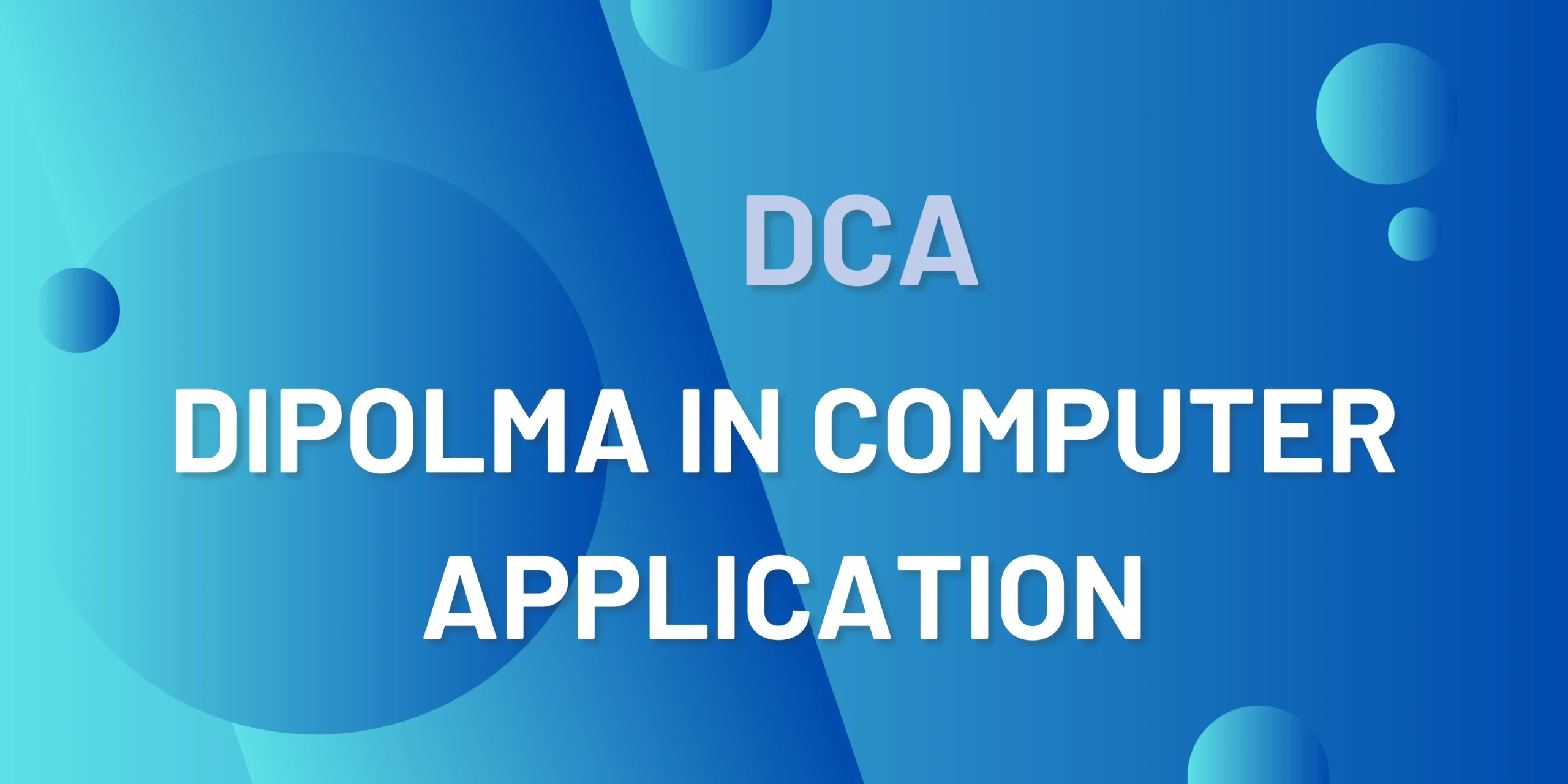Diploma in Computer Application (DCA)
The Diploma in Computer Application (DCA) course is designed to equip students with practical skills in using computer applications for various tasks. It covers fundamental concepts of computer science, including operating systems, programming languages, database management, and web development. Students learn to use software such as Microsoft Office for word processing, spreadsheets, and presentations. They also gain proficiency in programming languages like Java, C++, or Python, enabling them to develop software applications and automate tasks. The course may include modules on web design, where students learn HTML, CSS, and JavaScript to create interactive websites. Additionally, database management modules teach students to design and manage databases using tools like MySQL or Oracle. The DCA course combines theoretical knowledge with hands-on training, preparing students for careers in software development, IT support, or system administration.

Duration - 6 Months
Module 1: Fundamentals of Information Technology
Definition and Characteristics
History and Evolution
Types of Computers
Applications of Computers
Hardware Components (CPU, Input/Output Devices)
Software Components (System Software, Application Software)
Understanding the Boot Process
Introduction to Operating Systems
Types of Operating Systems (Windows, Linux, etc.)
Basic Operations (Startup, Shutdown, Sleep, Hibernate)
File Management and Directories
Module 2: Office Automation and Productivity Tools
Document Creation and Editing
Formatting Text and Paragraphs
Using Tables, Images, and Charts
Mail Merge and Templates
Worksheet Basics
Formulas and Functions
Data Sorting and Filtering
Charts and Graphs
Data Analysis Tools
Creating and Editing Slides
Using Themes and Templates
Inserting Multimedia
Animations and Transitions
Database Concepts and Architecture
Creating and Managing Tables
Queries and Forms
Reports and Data Analysis
Module 3: Computer Programming
Basic Programming Concepts
Introduction to Programming Languages (C, C++, Python)
Writing and Executing Simple Programs
Syntax and Structure of C/C++
Variables and Data Types
Control Structures (If-Else, Loops)
Functions and Procedures
Arrays and Strings
Pointers and Memory Management
Basics of Python Programming
Variables, Data Types, and Operators
Control Structures (If-Else, Loops)
Functions and Modules
Lists, Tuples, and Dictionaries
File Handling and Exception Handling
Module 4: Web Design and Development
Basics of HTML
HTML Elements and Attributes
Cascading Style Sheets (CSS)
Page Layout and Design
Introduction to JavaScript
Variables, Data Types, and Operators
Control Structures (If-Else, Loops)
Functions and Event Handling
Basics of Web Hosting
Domain Name System (DNS)
File Transfer Protocol (FTP)
Web Hosting Platforms and Management
Module 5: Computer Networks and Internet
Basics of Computer Networks
Types of Networks (LAN, WAN, MAN)
Network Topologies
Network Devices (Router, Switch, Hub)
Understanding Internet and Intranet
Browsers and Search Engines
Connecting to the Internet (Dial-up, Broadband, Wi-Fi)
Email and Communication Tools
Cyber Security Basics
Module 6: E-Commerce and Digital Marketing
Introduction to E-Commerce
Types of E-Commerce (B2B, B2C, C2C)
E-Commerce Business Models
Online Payment Systems
Introduction to Digital Marketing
Search Engine Optimization (SEO)
Social Media Marketing
Email Marketing
Content Marketing
Analytics and Reporting
Module 7: Practical Assignments and Project Work
Word Processing Assignment
Spreadsheet Assignment
Presentation Assignment
Database Management Assignment
Programming Assignment (C/C++/Python)
Web Designing Assignment
Project Planning and Analysis
System Design and Implementation
Testing and Debugging
Project Documentation and Presentation
